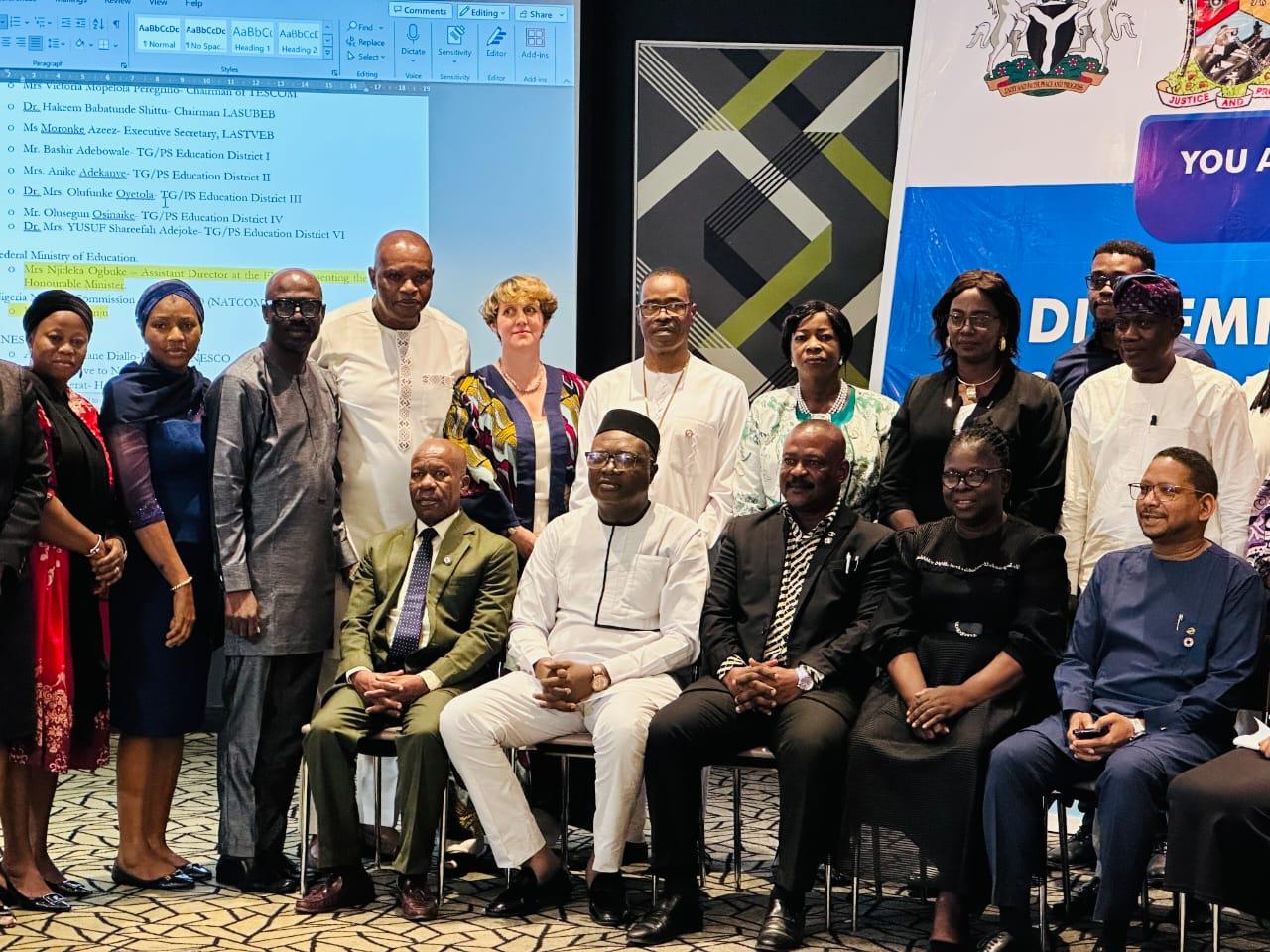
… as UNESCO, LASG, AHI begin dissemination of study outcomes
By Chioma Obinna
The United Nations Educational, Scientific and Cultural Organisation, (UNESCO) in collaboration with the Lagos State Government, Federal Government and Action Health Incorporation, (AHI) on Tuesday unveiled the outcome of the study on the short and intermediate Term Outcomes of the Family Life and HIV Educational, (FLHE) even as the study has shown positive impacts on students in Lagos in line with its objectives.
The study commissioned in 2023 which explored outcomes that have not been thoroughly studied to date showed that FLHE has empowered students with the knowledge and skills necessary to make informed decisions regarding their sexual and reproductive health.
The study captured the factors that may contribute to an enabling environment for healthy interpersonal relationships and also focused on healthy lifestyles, family life, sexuality education and relationships.
Speaking at the High-Level Dissemination Meeting on the short and intermediate Term Outcomes of FLHE implementation in Lagos, UNESCO representative from the Head of Office in Nigeria, Mr Abdourahamane Diallo, noted that globally, measurement frameworks for FLHE tend to have a continued focus on sexual, behavioural and population-level health outcomes such as rates of unintended pregnancies, HIV or STI incidence, school dropout or continuation, and child marriage.
Consequently, he said, the narrow focus fails to provide evidence for the broader potential of education for health and wellbeing.
“For example: Like how, or to what extent, national programmes influence outcomes related to learners’ social and emotional life skills, or knowledge, beliefs, attitudes, and values around gender, and healthy/equitable interpersonal relationships, human rights, or healthy sexuality.”
He said to address these gaps, UNESCO 2022 commissioned Torchlight Collective to conduct a mixed methods study on short and intermediate-term outcomes of national programmes in six countries – Argentina (Buenos Aires), Armenia, Jamaica, Laos, Namibia and Nigeria (Lagos) – on education for life skills, family life, health, sexuality and relationships.
He explained that the study focused on outcomes related to healthy relationships between adolescents and parents, peers and romantic partners.
He said: “In addition, the study also set out to capture the factors that may contribute to an enabling environment for high-quality EHW.”
“Lagos has always been a role model to other states therefore, it was not difficult to identify Lagos as the state for the pilot study as it shows the best-case scenario for Nigeria.
Diallo said the dissemination of the findings to get input from local stakeholders would engender the required ownership of the report and consequently address recommendations of the report as well as inform action to strengthen the FLHE in Nigeria.
He lauded the Lagos State mandate at achieving equitable and quality education for all by 2030 adding that, “UNESCO will continue to use its comparative advantage at improving the Learning outcomes in Nigeria using policy improvements, curriculum development, teacher training, governance, standardisation and strengthening systems to improve learning outcomes.”
He recalled that the FLHE was approved by the National Council on Education (NCE) in 2004 and since then, trained teachers have been mainstreaming the content of the curriculum into career subjects with the support of implementing partners, especially UN Family including UNESCO.
Speaking, the Lagos Commissioner for State Basic and Secondary Education, Mr Jamiu Alli-Balogun said the integration of FLHE into the state education curriculum has transformed the lives of the students, and improved learning.
Represented by the Director, Education Resource Centre, Mrs Omolayo Akinlade, he noted that with FLHE they had over the past years, witnessed the transformative impact of the education on the lives of their students. “They have been empowered with knowledge and skills necessary to make informed decisions regarding their sexual and reproductive health.”
Alli- Balogun He said the state localised the national curriculum and adopted FLHE into the scheme of work in some of the subjects including, basic science, social studies and Civic education for easy dissemination to students.
He said: “Our commitment to the well-being and holistic development of students extends beyond the walls of the classroom to encompass the fundamental values of knowledge, compassion, and resilience.
Acknowledging the challenges and complexity in addressing HIV/AIDS and promoting family life education, he pledged the state government’s commitment to providing comprehensive and age-appropriate education to all students to ensure that no child is left behind.
On her part, Co-founder (AHI), Mrs Adenike Essiet noted that for over 35 years, they had been committed to promoting the health, and well-being of young people, especially catalysing opportunities for their access to FLHE.
She said as an implementing partner for UNESCO’s FLHE programme in Lagos, they partnered with Education District IV to carry out the study in schools in the district.
Eshiet who said lessons from the study would help learn things to do, implementation fast-tracked, and improved solutions for young people in the country added that the commitment to the well-being and holistic development of students extends far beyond the walls of the classroom but encompasses the fundamental values of knowledge, compassion, and resonance.
Disclaimer
Comments expressed here do not reflect the opinions of Vanguard newspapers or any employee thereof.